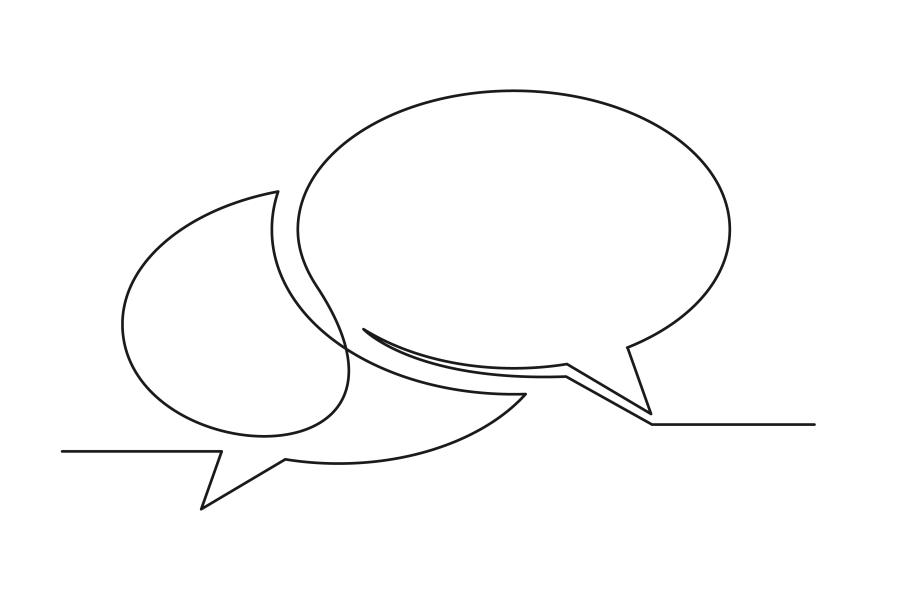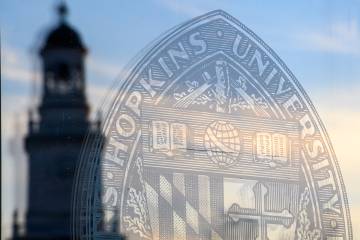College presents new students with an array of opportunities to learn more about themselves and connect with new communities. In an effort to give students the space to explore their identities in the context of their first year of college, Johns Hopkins University's Center for Diversity and Inclusion developed the Identity and Inclusion workshop—a two-part series for first-year and transfer students.
While the workshop was initially introduced in 2016 in tandem with the first Roadmap on Diversity and Inclusion, the current iteration is closely tied to the student goals within the second Roadmap, with the aim of developing students' capacity to be engaged citizens of the world by building an integrated view of diversity, equity, and inclusion.
"Universities must be proactive in creating opportunities for students to discuss their own identities, lived experiences, and perspectives for the benefits of a diverse campus to be realized," says Charles Lu, associate dean of diversity and inclusion. "We created this workshop with multiple opportunities for students to discuss and learn from each other right from the beginning of their collegiate journey."
The first part of the workshop, completed asynchronously by students during their first fall semester, takes students through several touchpoints. The workshop includes a glossary of key terms related to diversity and inclusion, such as allyship, pluralism, and identity, and connects diversity and inclusion to students' home communities and to their new home in Baltimore. This part of the workshop aims to cultivate a strong foundation for further exploration of diversity, equity, and inclusion, with faculty and staff providing insight on these topics throughout the experience.
An interactive activity comes in the form of the Opportunity Atlas, which compiles demographic data from communities across the United States related to age, education level, household income, and more. Students are asked to explore the demographics of the Baltimore area and of their home communities, comparing the two. The exercise helps students find connections between their communities and their identities, gaining insight into the different opportunities people have access to based on their backgrounds. A final prompt asks students to write a letter to themselves as a fourth-year student, detailing what they hope to learn from everyone they meet at Hopkins and how they can productively interact with those who come from different backgrounds during their time in college.
An evaluation of the first part of the workshop conducted by the Center for Diversity and Inclusion found that students benefited from the content—students shared that they became more comfortable with key concepts, gained a greater understanding of their identities and how they interact with others, and learned more about how their home communities compare to the Baltimore community. Lu says the most common feedback from students is their desire for an opportunity to discuss what they learned with other students and bring action to the ideas they learned about.
Junior Frank Meng, who double majors in English and sociology, says he recognizes that the first part of the workshop that he participated in during his first year at Hopkins could be helpful in learning about others' identities and experiences.
"Many students come from homogenous backgrounds and the workshop [could] facilitate their transition to a diverse campus," he says.
But he adds that he also sees room for improvement on the topics covered, suggesting featuring the voices of marginalized communities more prominently in the workshop as well as addressing the university's history and potential for growth in the diversity and inclusion realm.
Students will have the chance to engage with others during the second part of the workshop, which will be held for the first time this spring in a synchronous, in-person format. This aspect of the workshop will dive more deeply into concepts covered in the first part and will allow students to more critically think through and discuss their own identities and the identities of their fellow students.
In both parts of the workshop, students are made aware of campus resources with which they can engage, such as the Center for Diversity and Inclusion, the Center for Social Concern, the Center for Student Success, Center for Health Education and Well-Being, Student Disability Services, Student Outreach and Support, Leadership Engagement and Experiential Development, Office of International Services, and the Counseling Center, among others.
Posted in Student Life
Tagged diversity, student activities, inclusion, equity









